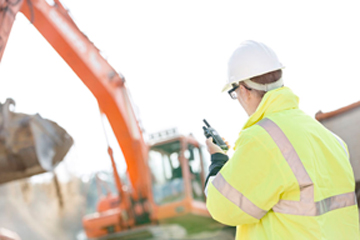Overview
Our clients continue asking us the same three questions below as it pertains to COVID-19’s impact on construction work in Illinois.  We include those questions and our answers below:
We include those questions and our answers below:
1. Can my construction company continue to work despite the “shelter in place” order?
Answer: Generally, yes. Thanks in no small part to the trade unions, the Governor’s executive order provides numerous exceptions relating to the construction industry. Those exceptions are located throughout the order, but are located primarily in Section 9 “Essential Infrastructure,” Section 12(h) “Critical Trades,” and Section 12(t) relating to the manufacturing and shipping of construction products. Also, throughout the Federal guidance on Critical Infrastructure Sectors, construction is referenced repeatedly as essential and supporting essential business. If you fall into any of those exceptions, you should identify the applicable exception(s) and be prepared to explain the exception(s) if someone asks.
2. What steps, if any, should I take to protect my employees and others on construction projects?
Answer: A number of reputable sources have put out information relating to protections that should be taken to protect workers on construction projects from COVID-19. The three we like best are from the AGC, OSHA, and ABC. In large part, they provide practical, common-sense advice, including: 1) ensure people who are sick are kept from the site; 2) provide employees with clean, accessible facilities to go to the bathroom and wash their hands (with soap); 3) keep employees spread out; 4) do not require people to meet in large groups; 5) do not maintain a common water cooler or coffee station; and 6) clean and sanitize whenever and to the extent possible.
3. What steps should I take to protect my business from delays caused by COVID-19?
Answer: Just because you are allowed to work, does not mean your company won’t be delayed or otherwise impacted by COVID-19. For example, your employees could get sick or otherwise be prevented from working for childcare reasons; there could be a shortage or a breakdown in the chain of supplies needed for your work; or the agency overseeing your work could refuse to conduct inspections or issue permits necessary to keep the work moving forward. In all of these cases—and many more not listed—your work will be delayed and your business impacted. As a result, we recommend reviewing your contracts now to see what they provide in terms of unexpected delays (sometimes referred to as “force majeure”). Look for terms relating to: deadlines for notifying your client of any delays, the type of notice required, and whether you are entitled to an extension of time and/or additional compensation for those delays, amongst others. Be prepared to properly assert those claims as soon as delays actually arise. Oftentimes, the failure to timely or properly assert a delay claim results in it being waived.
